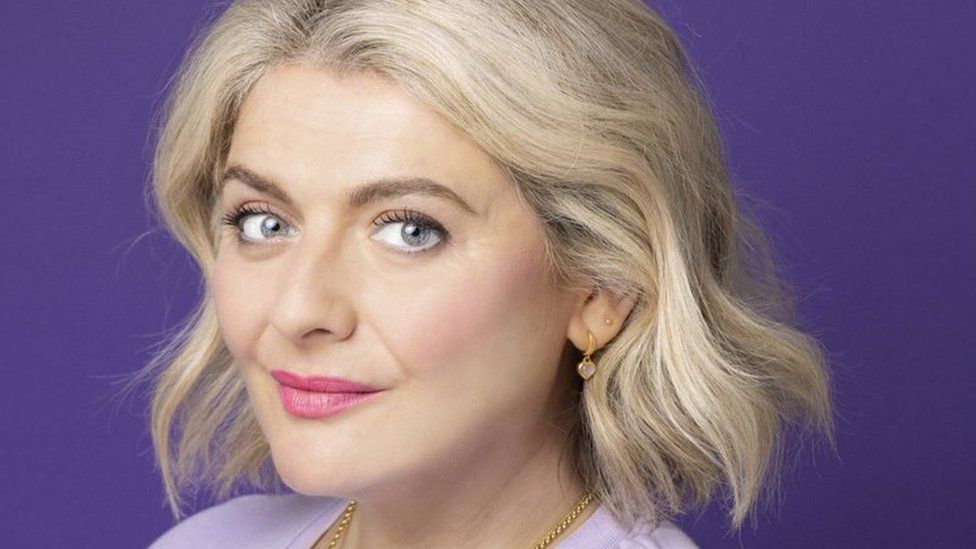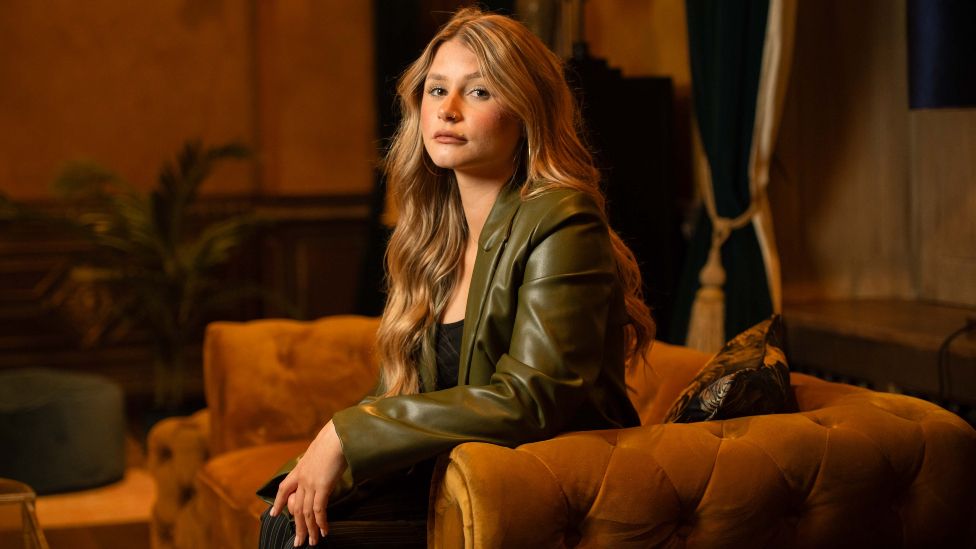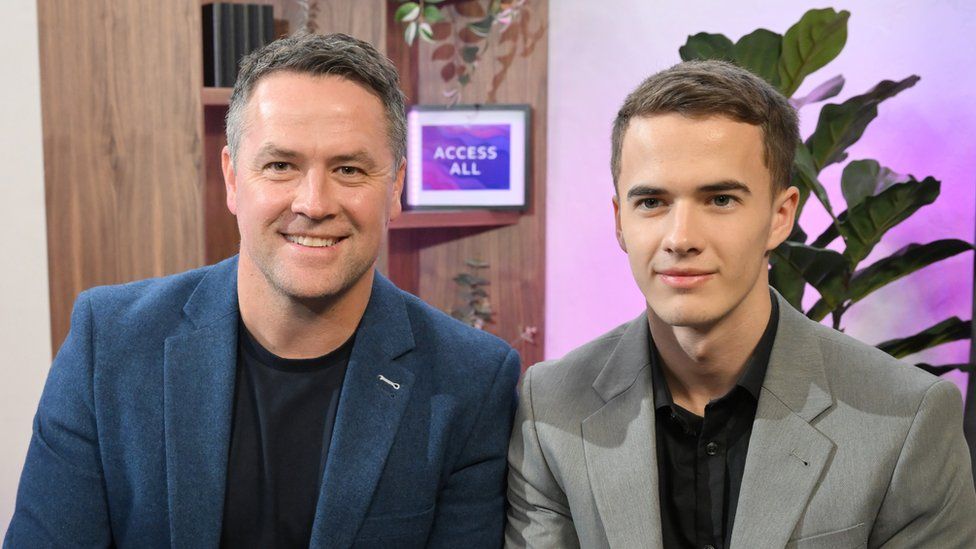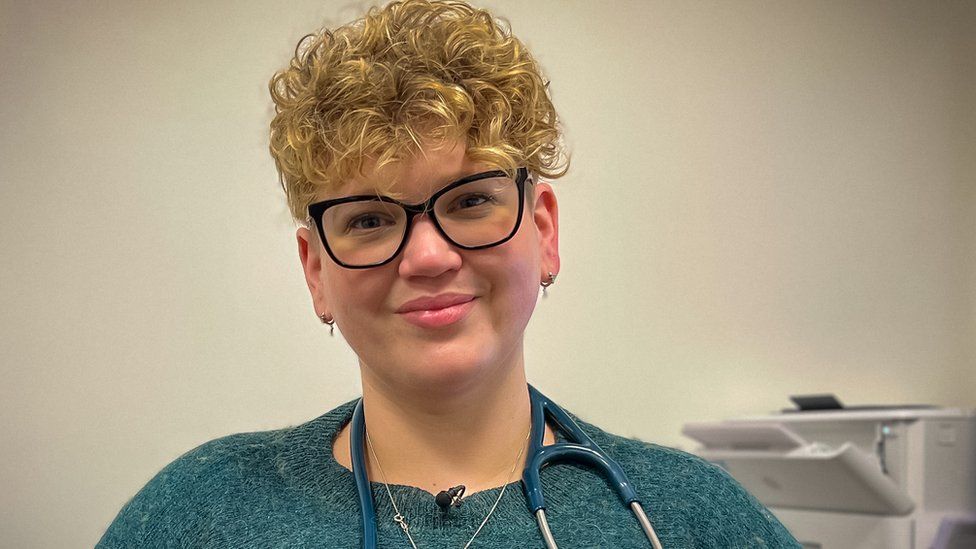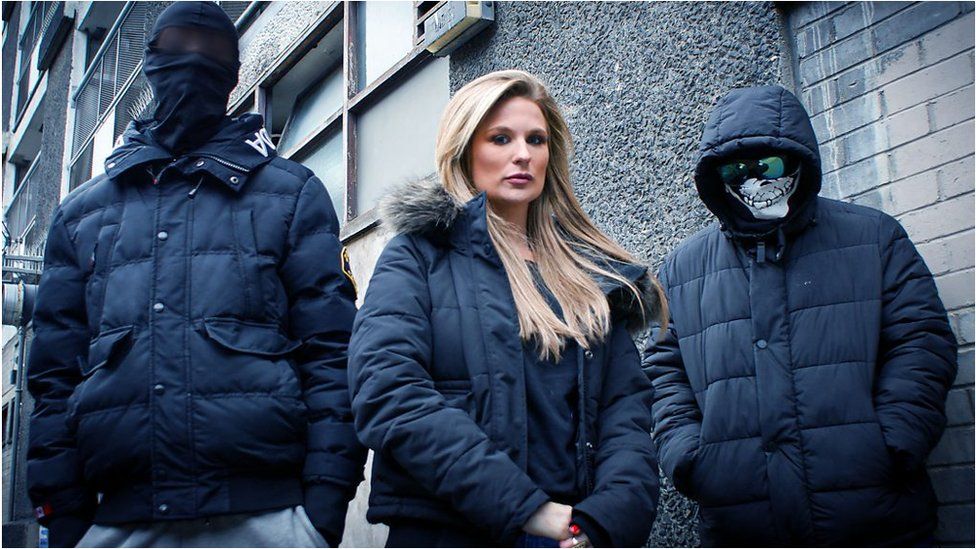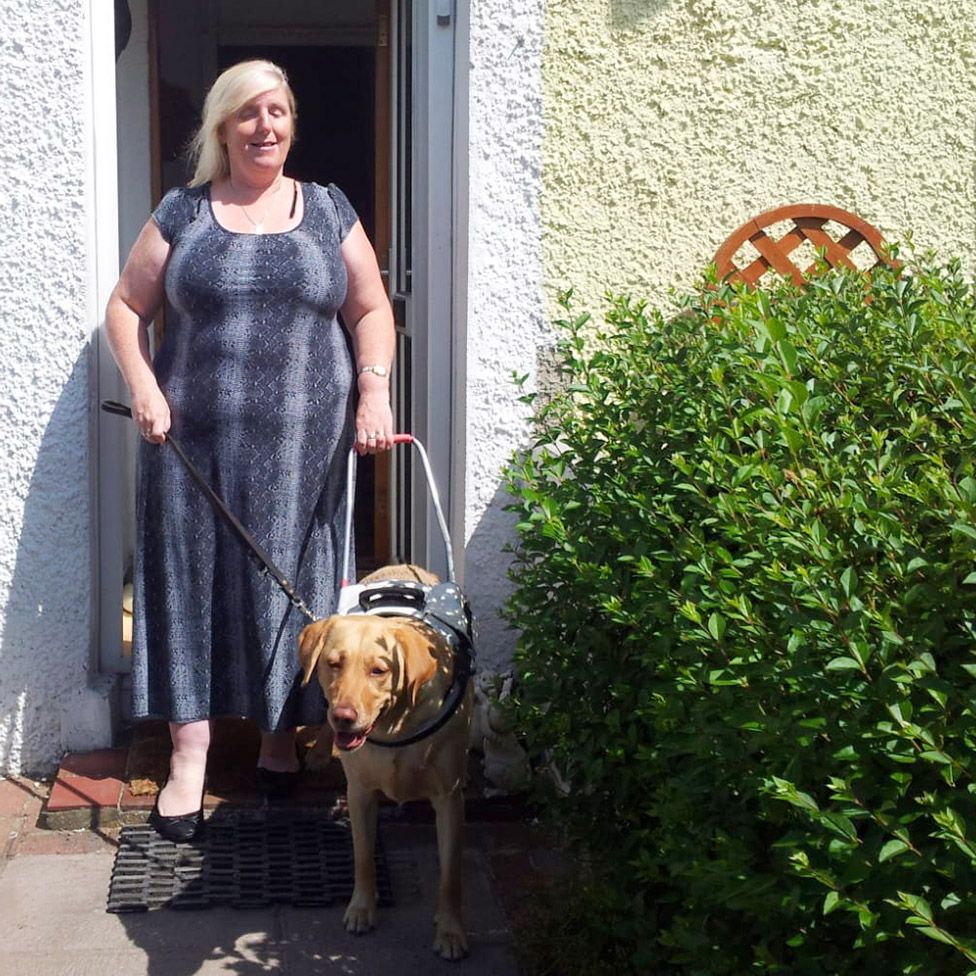‘Recovering from food addiction is like walking a tiger’
Published19 minutes agoShareclose panelShare pageCopy linkAbout sharingImage source, Bryony GordonBy Beth RoseBBC Access AllJournalist and author Bryony Gordon is an open book when it comes to talking about mental health, having lived with OCD, alcoholism, binge eating disorder and drug addiction. But being a woman and navigating health inequality is one challenge she hasn’t yet been able to overcome. “I am mad, but I’m also bloody angry,” Bryony says, nodding to her personal mental health challenges and how people can react to them.For many years she battled addictions, felt shame, recovered, relapsed and moved from one addiction to another, something she calls “cross addiction”. Often, she penned articles about her experiences in the Telegraph when she was looking for solidarity – a call of “anyone out there?” in the broadsheet.”The thing about all mental illnesses is that they thrive by lying to you,” she tells the Access All podcast. “By isolating you, by telling you that you’re a freak and by telling you that you’re alone.” Being able to bare herself to the world in her books and newspaper is something she now regards as a “really beautiful” way to connect with people, even if it can be “overwhelming”, especially when she learned her latest book had just beaten the currently popular One Day to the top of the Amazon book chart on publication day. Mad Woman is Bryony’s seventh book. But it is the one that got her thinking the most.Listen to the Access All podcast to hear more from Bryony GordonIt is the successor to her 2016 book, Mad Girl, all about her experiences of OCD, which came with a realisation.”People like to think you write your book about OCD and then you triumph over adversity. And as we all know this kind of life is a bit more nuanced and complicated than that.”What I’m trying to do by writing these books is to show you how recovery is messy. It is not linear.”Bryony was not immune to such straightforward hopes herself. “I really thought I’d sort of got it licked,” she says of her OCD. “New Year’s Eve 2019 I was like: ‘I’m sorted. I’ve triumphed!’.”Then March 2020 came around and Covid-19 hit.”I did not pick up a drink, but I did develop binge eating disorder. I fell back into quite a bad depression and the OCD came back pretty viciously,” she says.But it got Bryony thinking. Could extreme mental health responses actually be the brain responding proportionately to the situations we find ourselves in? She says it was the first time she had experience a depression when “everyone else around me was depressed too”.It made her consider whether it was entirely “appropriate” people were depressed because we were in lockdown and that is was just the brain alerting people to the fact “something isn’t right in your life, rather than it being down to a chemical imbalance which is how some people think about it. “If you are experiencing difficulties there’s probably a good reason for that,” she says. “So can we stop with this way that society gaslights, people and treats them like they’re freaks?”She feels women are most susceptible to this. Her book isn’t called Mad Woman for nothing. “In my experience, whenever I go to the doctor’s, it’s like, ‘try losing weight”.Image source, Bryony GordonIt was a palpitating heart that revealed to Bryony just how much inequality woman can face in the healthcare system when seeking medical help. She went to hospital and was told “‘it’s just your hormones’.”JUST my hormones?” Bryony scoffs. “They’re the most powerful chemicals known to humankind.”Eventually, she was diagnosed with arrhythmia and had an echocardiogram. A male doctor carried it out while also explaining to her what a triathlon was and how he had competed one in Spain which was “very hot” – Bryony considered it to be a classic example of “mansplaining”. “I let him go on and on and I let him have his plaudits and then I said ‘I’ve done a triathlon in Sardinia and I’ve done two marathons’, and he genuinely looked at me and he said. ‘How extraordinary’.” She says biases towards women and weight is something she comes up against all too often.She has been open about her binge eating disorder which has led to “chorizo blackouts” when she would obsessively buy, hide and eat packets of the Spanish sausage until the point of blackout. “I was eating vast, vast amounts of food – sometimes out of the bin – and it was to sort of try and calm myself. It was the only way I knew how, in absence of alcohol. I couldn’t pick up a drink, so I picked up the food instead.”Briony says it came with a huge amount of shame and was extremely difficult to manage given the body needs food to survive.”It’s like having to take a tiger out for a walk three times a day,” she says. “But it was as dark as the last days of my drinking were.”She says the pattern of focusing on women’s weight as a solve-all is detrimental and prevents so many people from seeking help, especially when it comes to binge eating disorder.”It’s not a weight issue. It’s a soul issue,” she says.”People with mental illness, do feel shame. So it is being able to see that we are suffering from an illness and it is not a moral failing. All organs misfire. We expect that. But for some reason the only one we judge is our brain.”Bryony’s way to reframe the shame has been through exercise. Eight years ago she set up Mental Health Mates which encourages people with mental health issues to walk and talk. It has inspired people to set up groups across the country.In April she will be taking on an epic challenge to raise money for her charity by running the Brighton Marathon, London Marathon and the distance in-between the two cities .People often joke that running has become another addiction for Bryony. But she’s pretty sure that’s not the case.”Exercise is so wonderful for the way it makes you feel, not the way it makes you look. Sadly, I don’t need to compulsively do it every day,” she laughs.Additional reporting by Niamh Hughes.You can listen to the podcast and find information and support on the BBC Access All page. You can contact Beth with a story by emailing bethany.rose@bbc.co.uk
Read more →
